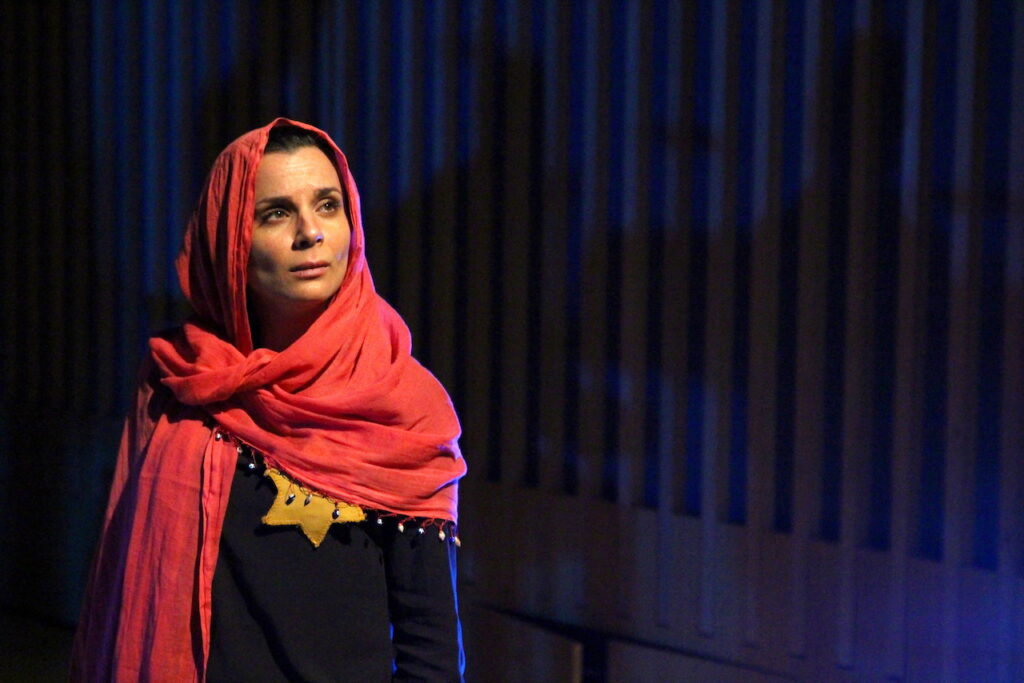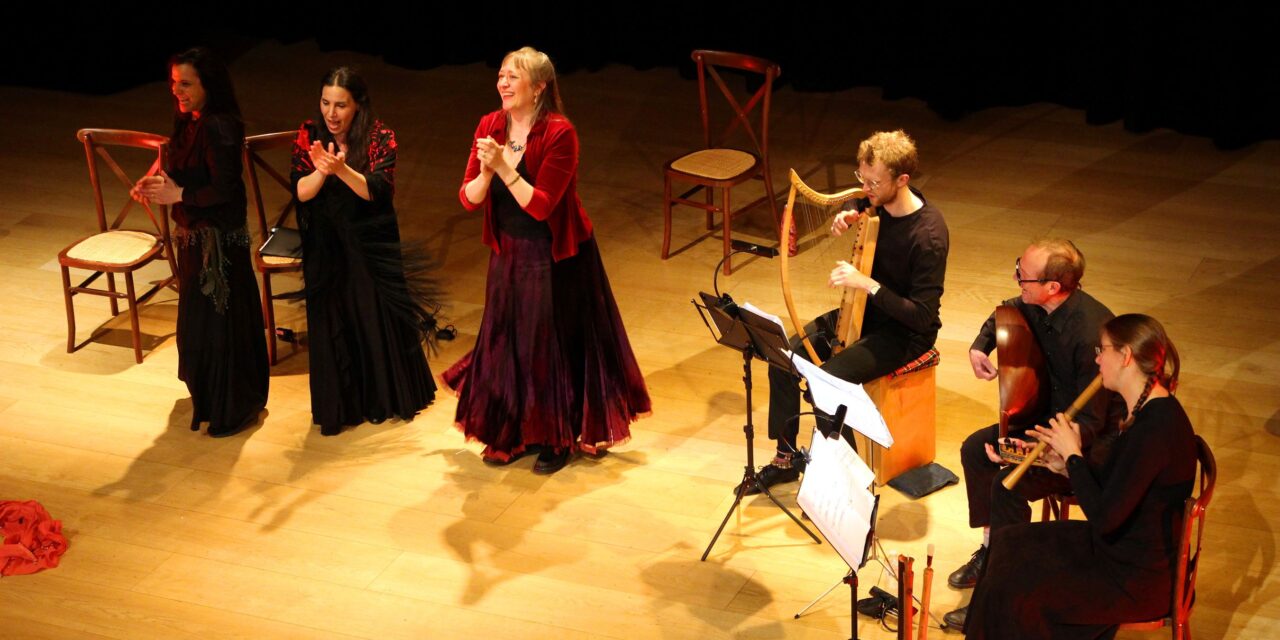
2 February
You may never have heard the term concert-play and it’s certainly a word which has never crossed my desk previously, but it is one we should use more and more for it ably and adeptly defines Clare Norburn’s form of theatre. The setting is simple six chairs, six performers. Five are musicians (Vivien Ellis, Avital Raz, Emily Baines, Giles Lewin, Jean Kelly.) playing recorders, a harp and the sonorous, and rarely seen, Arabic oud. One performer is our guide, our narrator, our storyteller – Clara Perez who evokes this story of displacement and persecution with an honest intimacy and passion. The music weaves into the narrative, underpinning, supporting it and movingly embellishing it.
It’s 1492 and a Jewish woman begins spinning wool on her last night in Seville, Spain knowing she is to be deported aboard a ship bound for an unknown future. As her tale unfurls she channels the voices of women (be they Jewish, Muslim or Christian) from the wider diaspora and creates a clear and undeniable comment on current world events. The clock is ticking and King Ferdinand and Queen Isabella declare all Jews must convert to Catholicism or face deportation. Yet running concurrently with the story of the period is a metaphor for all similar tales – Nazi Germany, of course, the pogroms – and a deeper meaning since the rise of far right anti-semitism in recent years. Perhaps demonstrating so clearly – things never really change.
It is a moving experience as we watch a small group of collaborators present a profoundly touching story so slightly but confidently directed by BAFTA-nominee, Nicholas Renton where music collides with drama and melds into something unique yet inclusive and true.
Playwright, Clare Norburn, has evolved a new genre in concert plays and has presented many in conjunction with her company, The Telling, and has written many plays including for BBC Radio Four. This, coupled with her work as a solo musician at various competitions, positions her as ideally suited and skilled to create such an important piece of work. The writing is clear, clean and accessible yet resonates deeply and for long after the play had finished. The medieval, Sephardic music is thrilling and the programme of translated lyrics prove potent and poignant.
★★★★☆ Sam Bolton 3rd February 2024
Photo credit: Robert Piwko


